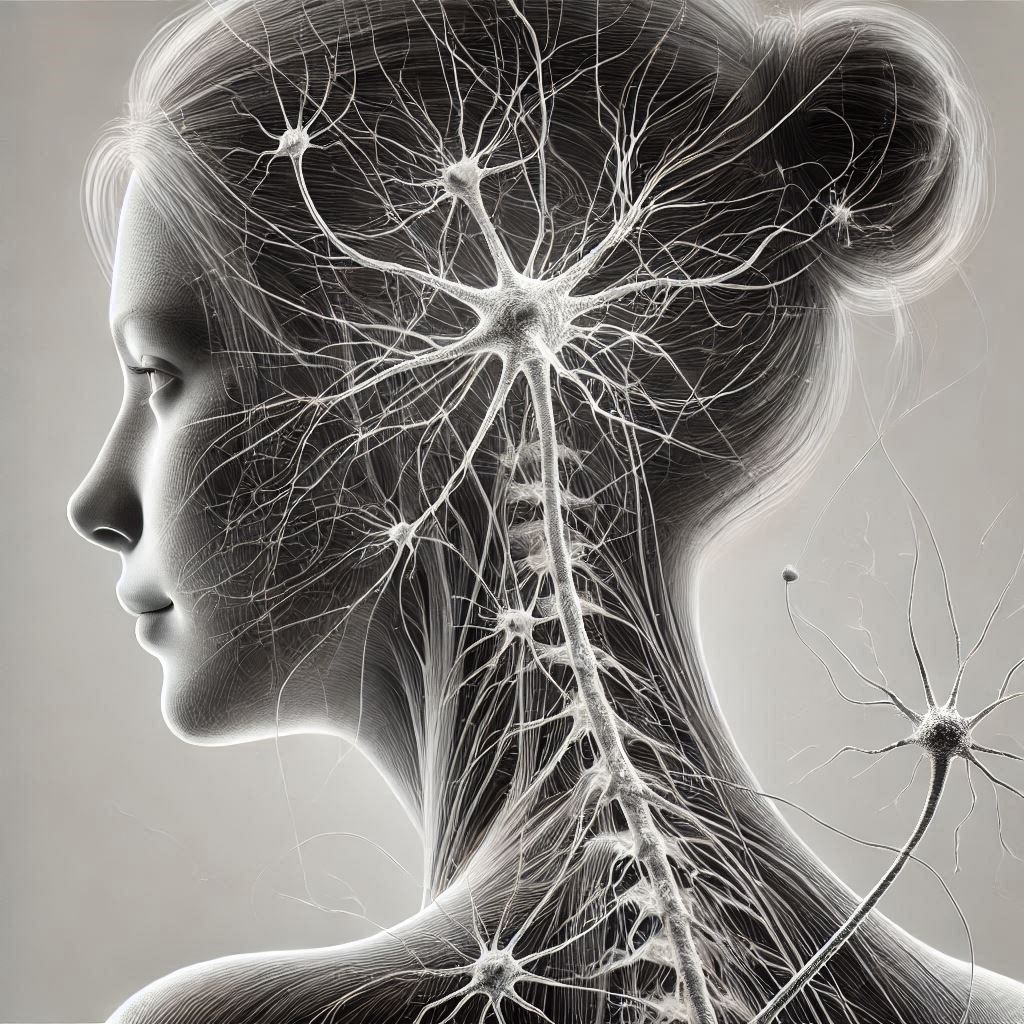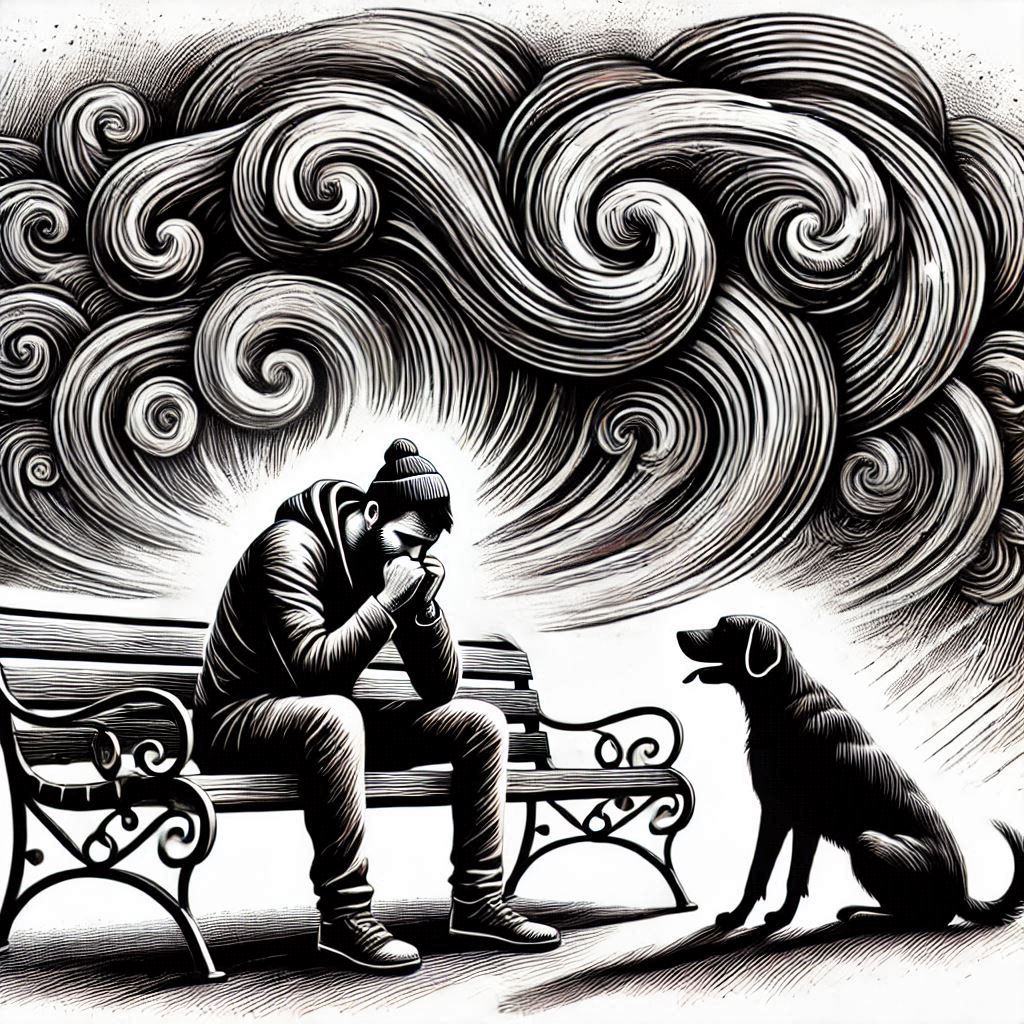Ever jolted awake in a heart-pounding panic? You’re not alone.
These startling episodes can disrupt your sleep and leave you feeling uneasy all night. Unlike their daytime counterparts, nocturnal panic attacks occur unexpectedly during sleep, often without a clear trigger. Understanding why these episodes happen is crucial, not only for peace of mind but also to effectively manage and prevent them.
In this post, we’ll explore the triggers and underlying factors that contribute to nocturnal panic attacks. From psychological stressors to biological influences, we’ll peel back the layers of this nighttime menace. Plus, we’ll discuss how these nocturnal disturbances differ from daytime panic attacks, arming you with the knowledge to safeguard your sleep. Stay tuned to uncover how to regain control and ensure more restful nights.
Understanding Nocturnal Panic Attacks
Have you ever experienced sudden intense fear or discomfort in the middle of the night? Nocturnal panic attacks can be terrifying experiences that disrupt sleep and leave individuals feeling overwhelmed. Let’s delve into what causes these nighttime episodes and how they differ from daytime panic attacks.
Definition and Symptoms
Nocturnal panic attacks are episodes of intense fear or anxiety that occur during sleep, waking individuals abruptly. Symptoms can include rapid heart rate, sweating, trembling, shortness of breath, chest pain, nausea, and a sense of impending doom. Imagine feeling a surge of terror while deep in sleep, your heart racing as if trying to catch up with a nightmare you can’t remember.
Prevalence and Impact
While not as common as daytime panic attacks, nocturnal panic attacks can have a significant impact on an individual’s life. Those experiencing these nighttime episodes often report disruptions in their sleep patterns, leading to fatigue and increased anxiety during the day. It’s like being stuck in a rollercoaster of fear, with no control over when the next drop will come.
Comparison with Daytime Panic Attacks
Nocturnal panic attacks differ from daytime panic attacks in the timing of occurrence. Daytime panic attacks usually happen when awake, triggered by specific situations or stimuli, while their nocturnal counterparts strike during sleep without an apparent external trigger. It’s like facing your fears in the dark when your defenses are down, adding an extra layer of vulnerability to the experience.
Understanding the nuances of nocturnal panic attacks can help individuals recognize and seek appropriate support to manage these challenging episodes effectively.
Remember, you’re not alone in facing these nighttime terrors. Seeking guidance from healthcare professionals and exploring coping mechanisms can provide reassurance and help regain a sense of control over your sleeping hours.
Potential Causes of Nocturnal Panic Attacks
Nocturnal panic attacks can be a frightening and bewildering experience, often leaving individuals feeling overwhelmed and uncertain about the underlying causes. Understanding the potential triggers of these nighttime episodes is crucial in managing and addressing them effectively. Several factors can contribute to the occurrence of panic attacks during sleep.
Genetic Predisposition
Genetic predisposition plays a significant role in the development of panic disorder and nocturnal panic attacks. Research suggests that individuals with a family history of anxiety disorders or panic attacks may have a higher likelihood of experiencing similar symptoms themselves. Genetic factors can influence how the brain responds to stress and anxiety, making some individuals more susceptible to panic attacks, especially during sleep.
Stress and Anxiety Triggers
Stress and anxiety are common triggers for panic attacks, both during the day and at night. High levels of stress, unresolved emotional issues, work pressure, relationship problems, or traumatic events can all contribute to nocturnal panic attacks. The body’s response to stress, including the release of stress hormones like cortisol, can disrupt sleep patterns and increase the likelihood of panic attacks during the night.
Sleep Disorders
Sleep disorders, such as insomnia, sleep apnea, or parasomnias, can disrupt the normal sleep cycle and trigger nocturnal panic attacks. Sleep deprivation or inconsistent sleep patterns can heighten anxiety levels and contribute to the development of panic symptoms during the night. Addressing underlying sleep disorders through proper diagnosis and treatment is essential in managing panic attacks during sleep.
Medical Conditions
Certain medical conditions, such as thyroid disorders, cardiovascular issues, or respiratory problems, can also contribute to nocturnal panic attacks. Physical health ailments that impact breathing, heart rate, or neurological functions can trigger panic symptoms during sleep. It is crucial to consult with a healthcare provider to rule out any underlying medical conditions that may be exacerbating nighttime panic attacks.
Substance Use and Withdrawal
Substance use, including alcohol, caffeine, nicotine, or recreational drugs, can exacerbate anxiety symptoms and increase the risk of nocturnal panic attacks. Withdrawal from certain substances, such as benzodiazepines or antidepressants, can also trigger rebound anxiety and panic episodes during sleep. Maintaining a healthy lifestyle and avoiding substance abuse can help reduce the frequency of nighttime panic attacks.
Environmental Factors
Environmental factors, such as noise pollution, extreme temperatures, or disruptions in the sleep environment, can contribute to nocturnal panic attacks. Creating a calm and comfortable sleeping environment, practicing relaxation techniques before bedtime, and establishing a consistent bedtime routine can help minimize environmental triggers for panic attacks during sleep.
Understanding the potential causes of nocturnal panic attacks is the first step towards effectively managing and addressing these distressing episodes. By identifying and addressing underlying factors, individuals can take proactive steps to reduce the frequency and intensity of nighttime panic attacks, promoting better sleep and overall well-being.
Diagnosis and Treatment
When it comes to dealing with nocturnal panic attacks, getting the right diagnosis and treatment is crucial. Here’s a breakdown of how you can approach seeking medical advice, therapeutic approaches, and making lifestyle changes to manage these challenging episodes.
Seeking Medical Advice
If you suspect you’re experiencing nocturnal panic attacks, the first step is to seek medical advice. Consulting with a healthcare professional, such as a primary care physician or a mental health specialist, can help in confirming the diagnosis and developing a treatment plan tailored to your needs. Be open and honest about your symptoms, triggers, and concerns to receive the appropriate guidance.
Therapeutic Approaches
Therapeutic interventions play a significant role in managing nocturnal panic attacks. Cognitive-behavioral therapy (CBT), particularly a specialized form known as exposure therapy, has shown effectiveness in treating panic disorder. This type of therapy aims to help individuals confront and cope with their fears in a controlled setting, gradually reducing the intensity of panic attacks over time.
Lifestyle Changes
In addition to therapy, incorporating lifestyle changes can contribute to reducing the frequency and severity of nocturnal panic attacks. Practicing relaxation techniques such as deep breathing exercises, mindfulness meditation, or progressive muscle relaxation can help alleviate stress and anxiety levels. Regular exercise, adequate sleep, and a balanced diet are also essential factors in promoting overall well-being and managing panic symptoms.
By combining medical advice, therapeutic approaches, and lifestyle adjustments, individuals can take proactive steps towards understanding and managing their nocturnal panic attacks effectively. Remember, seeking professional help and being consistent in implementing recommended strategies are key aspects of the journey towards better mental health.
Prevention Strategies for Nocturnal Panic Attacks
Nocturnal panic attacks can be distressing, but implementing effective prevention strategies can help reduce their occurrence. By incorporating simple habits into your bedtime routine, you can create a more calming and secure environment for restful sleep, minimizing the likelihood of nocturnal panic episodes. Here are some practical tips to help you prevent nocturnal panic attacks:
Establishing a Routine Sleep Schedule
Maintaining a consistent sleep schedule is crucial for reducing the risk of nocturnal panic attacks. Try to go to bed and wake up at the same time each day, even on weekends. This regularity helps regulate your body’s internal clock, promoting better sleep quality and overall emotional well-being.
Stress Management Techniques
Incorporating stress management techniques into your daily routine can significantly lower the risk of nocturnal panic attacks. Practice relaxation exercises such as deep breathing, meditation, or gentle yoga before bedtime to calm your mind and body. Engaging in activities that promote mindfulness and reduce stress can lead to more restful nights.
Creating a Relaxing Sleep Environment
Designing a tranquil sleep environment can contribute to a sense of security and relaxation, reducing the likelihood of nocturnal panic attacks. Keep your bedroom cool, dark, and quiet to enhance sleep quality. Consider using calming scents like lavender or chamomile, and invest in comfortable bedding to create a cozy sleep sanctuary.
Avoiding Triggers Before Bed
Identifying and avoiding potential triggers before bedtime is essential in preventing nocturnal panic attacks. Limit consumption of caffeine and alcohol in the evening, as these substances can disrupt sleep patterns and exacerbate anxiety. Additionally, avoid stimulating activities, such as intense exercise or engaging with stressful content, close to bedtime to promote a sense of calm before sleep.
By incorporating these preventive strategies into your nightly routine, you can create a peaceful and supportive environment that encourages restful sleep and minimizes the occurrence of nocturnal panic attacks. Remember, consistency and self-care play key roles in managing nighttime anxiety and fostering a sense of well-being.
Conclusion
Nocturnal panic attacks can be a frightening and disruptive experience for those who suffer from them. Understanding the potential causes and triggers of these nighttime episodes is crucial in managing and seeking appropriate help. By addressing underlying issues, practicing relaxation techniques, and seeking professional support, individuals can take steps towards reducing the frequency and intensity of these nocturnal panic attacks. Remember, everyone’s journey is different, so finding what works best for you may require patience and persistence. Stay informed, stay proactive, and most importantly, prioritize your mental well-being.








